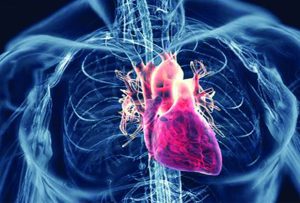 In the United States, over 730,000 Americans suffer heart attacks every year. Heart disease is the number one killer of both men and women.
In the United States, over 730,000 Americans suffer heart attacks every year. Heart disease is the number one killer of both men and women.
Various disorders are major contributors in heart complications, like stress, high blood pressure, high cholesterol, atherosclerosis (plaque in arteries), family history, smoking, and obesity.
Arterial plaque, narrowing of the vascular arteries, and the lack of oxygen causes heart attacks. Every 40 seconds someone in the United States dies of myocardial infarction.
Heart Attack Symptoms
• Chest Pain and tightness
• Lightheaded
• Dizzy
• Tired/Fatigue
• Shortness of breath
• Anxiety
• Rapid heart rate
• Sweating
• Gray color to skin
• Arm/Shoulder Pain
• Abnormal heart palpitations
If you have any of the symptoms above, please call 911. The sooner you get treated, the better your chances of survival.
Over 325,000 people will experience a sudden cardiac arrest per year. It is the number one cause of death in the United States, leaving 90 percent of its victims deceased. Unlike Cardiac Arrest (a heart attack), where a portion of the heart stops due to a blockage, in the case of Sudden Cardiac Arrest, it’s not a blockage problem; it’s an electrical stimulation problem. If defibrillation is not administered immediately, the likelihood of survival is bleak. A defibrillator sends an electric shock to the heart that stops the heart ‘s ventricle fibrillation (an irregular arrhythmia) so that it can start beating and pumping normally again.
If a person experiences a sudden cardiac arrest and an AED (automated external defibrillator) is not available, CPR (Cardio pulmonary resuscitation) should be administered until defibrillation can be applied. This is the reason that many public places, like airports, sports venues, shopping centers, hotels, and more have automated external defibrillators available. The AED’s can detect whether or not the person is truly suffering from a serious arrhythmia, and only sends the shock to the heart if this has occurred. This prevents the average person from making the error of seeing a person fainting and mistakenly thinking that they are in a life-threatening case of a sudden cardiac arrest. AED’s are straightforward and easy for anyone to use, but because we are dealing with the perilous seconds of someone’s life, sometimes AED’s are not used quickly enough.
Risk Factors of Sudden Cardiac Arrest
• Coronary Heart Disease
• Personal or Family History of SCA or Heart disorders
• Drug/Alcohol Abuse
• Prior Hear Attack
• Heart Failure
• CHD/Coronary Heart Disease
Symptoms
• Chest Pain
• Nausea
• Vomiting
• Shortness of Breath
• Light Headed
At Cardiac Care Group, they take your symptoms seriously and are prepared to see you and to discuss your conditions. They specialize in providing a wide range of services that focus on the prevention, prompt diagnosis and state-of-the-art treatment of cardiovascular disease.
Dr. Joseph Freedman MD, MBA
Dr. Freedman brings many years of experience as a cutting edge cardiologist specializing in the prevention, diagnosis, and treatment of all cardiac disease. He trained at the prestigious Cleveland Clinic, continually ranked #1 in Cardiovascular Care, where he focused on
cardiac imaging. He achieved five board certifications in Internal Medicine, Cardiology, Comprehensive Adult ECHO, Nuclear Cardiology and Cardiac CT. During his tenure as the lead noninvasive cardiologist at Florida Medical Center in Ft. Lauderdale, he helped lead the hospital to achieve Level 5 chest pain certification, the highest designation of cardiac excellence.
He has spoken on national health care radio programs and has appeared on local news, highlighting the latest in cardiovascular care. Dr. Freedman prides himself on being an advocate for the patient. Every patient is unique, and he works carefully with leading local and national experts to make sure patients receive the best specialty procedural care possible for that particular case. Dr. Freedman has done research in cardiac MRI studies of the heart, in nuclear scanning, and has participated in the research trials of several leading cholesterol-lowering drugs. Dr. Freedman also has extensive experience in pulmonary hypertension and ran a large clinic in Broward County for these specific and often undiagnosed patients. Dr. Freedman speaks Spanish as well.
Cardiac care Group, LLC
3208 Chiquita Blvd S., Suite 110
Cape Coral, FL 33914
(239) 574-8463
www.flccg.com
This information is for educational purposes only and is not intended to replace the advice of your doctor or health care provider. We encourage you to discuss with your doctor any questions or concerns you may have.










